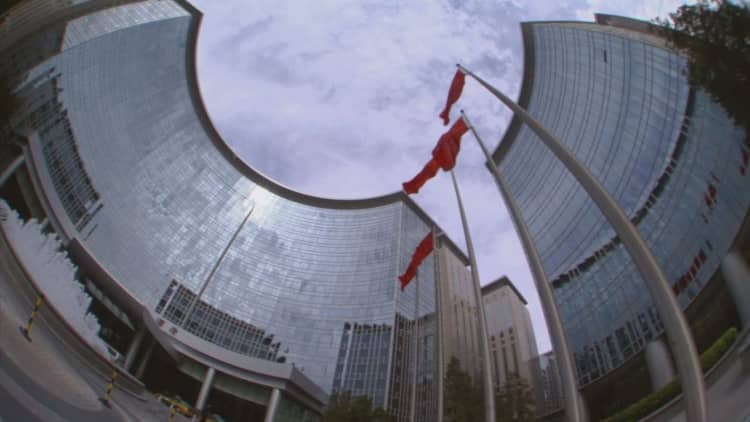For all President-elect Donald Trump's anti-China talk, Chinese business leaders say they're looking forward to working with a "businessman."
"You, know, he's good at making deals, 'The Art of the Deal,' right, so reaching a deal that's beneficial for both sides" will be key, Charles Zhang, CEO of Chinese internet search giant Sohu.com, told CNBC. "I think it's important to sit down and talk. That's ... a positive side of the Trump presidency."
"I wouldn't worry," added Zhang, who has a doctorate degree in experimental physics from the Massachusetts Institute of Technology.
He spoke this past weekend on the sidelines of the MIT-China Innovation and Entrepreneurship Forum, where Chinese business executives and fund managers were mostly upbeat about growth prospects for Chinese companies.

"Winter is the best time for a start-up," more than one China-based venture capitalist said at the conference.
U.S. goods and services trade with China totaled almost $660 billion in 2015, according to an estimate from the U.S. Trade Representative website. The United States had a trade deficit of $336.2 billion with China last year.
Claiming he can create more U.S. jobs, Trump has called for a 45 percent tariff on Chinese imports and says he wants to label the country a currency manipulator. His campaign platform states that the U.S. Trade Representative should bring trade cases against China in the U.S. and the World Trade Organization.
"The Chinese are looking at Trump 'glass half-full," Charles Freeman III, nonresident senior fellow in the John L. Thornton China Center at Brookings, told CNBC in a phone interview Monday.
"There certainly was a perception that values and U.S. security interest were more important than economic interests for the current and maybe previous administration," he said.
I think a little caution would be in their best interest ... There is a lot of political pressure on President-elect Trump to follow through on his promises.Timothy Heathsenior international defense research analyst, Rand Corp.
The Beijing party line echoes the positive tone voiced by the country's business executives. A Sunday opinion piece in China's state-controlled newspaper Global Times said the tariff is "merely campaign rhetoric."
If such a tax was imposed, China would take a "tit-for-tat" approach, the op-ed piece said, but "Trump as a shrewd businessman will not be so naïve."
That optimism may not be warranted.
"I think a little caution would be in their best interest ... There is a lot of political pressure on President-elect Trump to follow through on his promises," said Timothy Heath, senior international defense research analyst at Rand Corp.
He said official reports on a Monday phone call between Chinese President Xi Jinping and Trump "suggests to me the Chinese are being cautious."
Indeed, some U.S. business leaders have struck a more somber tone than their Chinese counterparts on what Trump's stated protectionist policies could bring. The real estate mogul has also called for tougher positions on immigration, potentially reducing the number of H-1B visas for high-skilled foreign workers who can enter the United States.
"I can't think of any upside" to the Trump election win, Yasheng Huang, an associate dean at the MIT Sloan School of Management, said in opening remarks at the MIT conference Saturday. He said he saw at least two downsides, on immigration and foreign policy.
"There is a concern for all of us, for all the tech companies, (for) Chinese students, Indian students," he said. "We need (them) for this community to develop vibrant technology and vibrant innovation."


